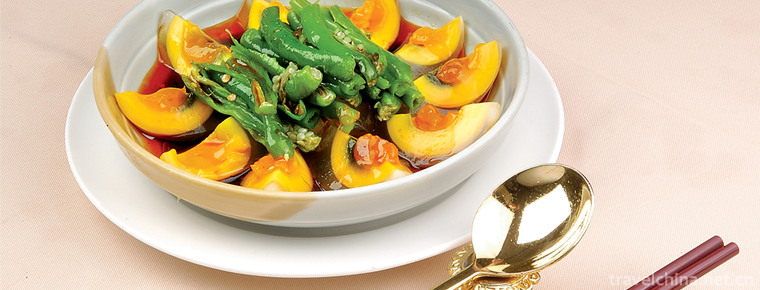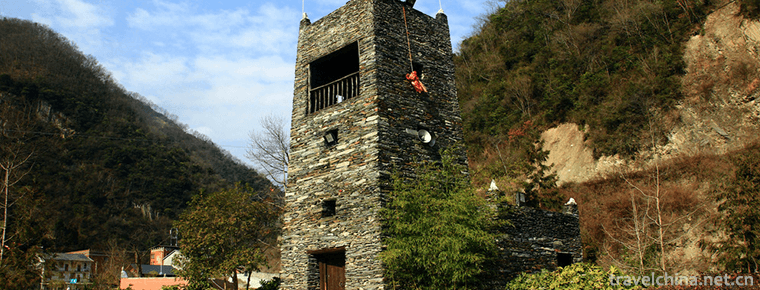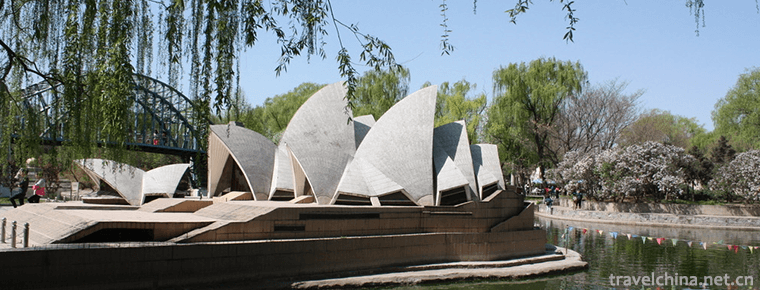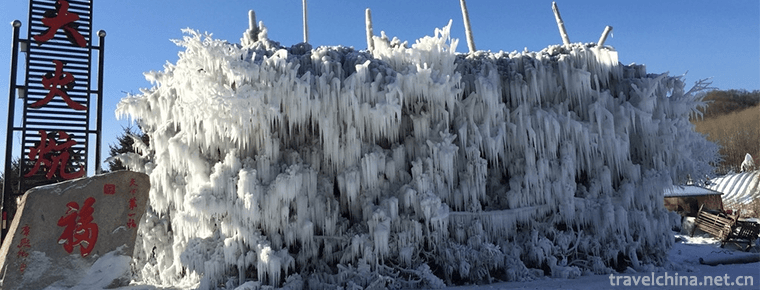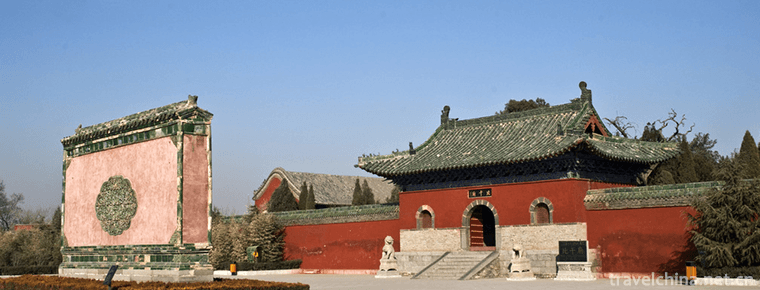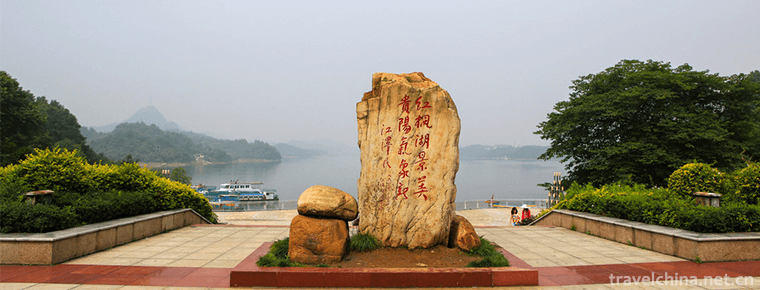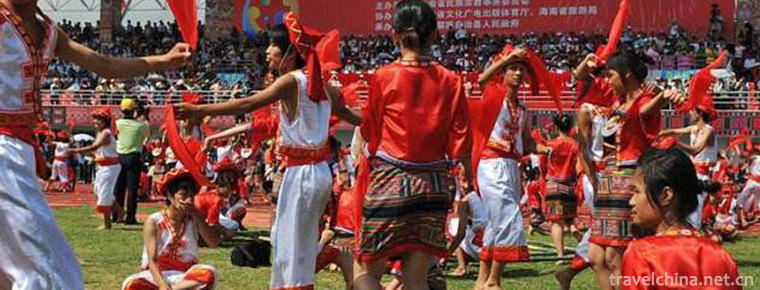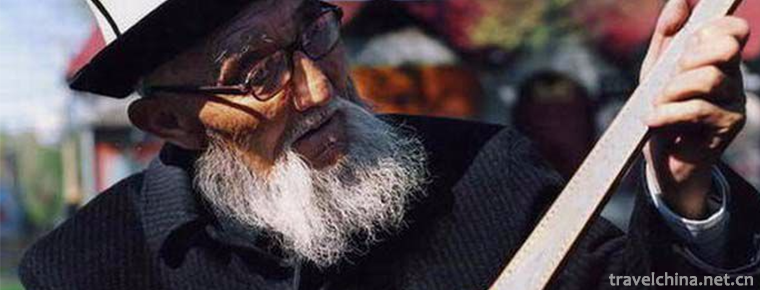Pangu Myth
Pangu Myth
Pangu myth, the local traditional folk literature of Tongbai County and Biyang County in Henan Province, is one of the national intangible cultural heritage.
Pangu myth is one of the ancient Chinese folk myths and legends, and it is a typical creation myth. Its characteristics include the inheritance of traditional culture, ideological implications, to express its life and to create the meaning and value of life. The content expresses the main four experiences of Pangu's origin, creation and extinction. The story of Pangu God is a legend that has existed for a long time in the history of mythology. It reflects Pangu's selfless and great dedication to the whole universe, leaving many wonderful and wonderful arts and masterpieces to the whole world. At last, Pangu fulfilled his mission and fell down with eternal achievements. Being preserved far away on the earth, it has become a lingering classic in history and is a well-known myth story with an ancient and immortal folk custom.
The story tells the story of the ancient times, the universe is like a big egg in chaos, a giant named Pangu has been sleeping in this big egg for about 18,000 years and wakes up, Pangu with its own magic power to open up the world. His left eye became the sun, his right eye became the moon; his hair and beard became the stars in the night sky; his body became the east, west, south, North quadrupole and magnificent mountains; his blood became rivers; his teeth, bones and bone marrow became underground mineral deposits; his skin and sweat became grass on the earth; his sweat became rain and dew. Therefore, it is said that human beings are the souls of all things in the world.
On June 7, 2008, Pangu myth was approved by the State Council of the People's Republic of China to be included in the second batch of national intangible cultural heritage list with the heritage number I-57.
historical origin
Historical Records
Pangu pioneered the world in Chinese mythology. Pangu mythology began in the Three Kingdoms, which was quoted by Xu Jun of Wu people. Although Pangu myth is not found in the pre-Qin ancient books, it has similarities with Candledragon myth recorded in Shanhai Jing, or is the evolution of this myth. By the end of Ming Dynasty, Zhou You wrote Pioneer and Deduction. Pangu added axe and chisel as two tools of labor. The content of the story developed into the idea of opening up the world through labor. The myth of Pangu has also been widely spread among ethnic minorities in southern China. Miao and Yao always worship Pangu and regard Pangu as their ancestors. The Zhuang, Dong and Mulao nationalities also widely spread Pangu, which was regarded as the first human ancestor to open up the world.
Summary of History
The protagonist in Pangu mythology is a famous orthodox God in ancient China, and is also one of the classical artistic images. The main story originates from the religious beliefs and folk legends handed down in ancient books. Being the sole God of creation, Pangu is the Supreme god, not only with grand status and status, but also with high-level temple specifications. The worshipers of local religious associations are also very high-level. There are also many believers. Traditional culture is mainly divided into two cultural systems: orthodox religious theology and folk belief theology. It expresses that Pangu made the world by his own powerful force and sang to the world. The word "pioneering heaven and earth" also represents the symbol of Pangu's creation. It also embodies the value of living, working and dying, and giving selfless devotion to life is more meaningful.
Pangu legend is the "starting point" of the whole mythological world, which reflects the rich and colorful imagination and admiration of the ancients for nature. This legend has spread to all parts of the people from ancient to present in the records of ancient books. There are also Pangu mythological stories in many related movies and TV works and novel works of past dynasties, or in some modern primary school language textbooks, which makes Pangu's role deepen from childhood. Readers'minds, and in a simple way without violating or feeling, read together. Many comic books and even children's books have been affected. Pangu has been the main image of innovative works, greatly improving its popularity and achievements, guiding more believers to learn culture and inherit classical legends, and maintaining Pangu's great image in the minds of the people. His myth is that Pangu is a great image in the minds of the people. China is an ancient and immortal legend.
Cultural characteristics
primary coverage
The content of Pangu myth is probably that in ancient times, the world was chaotic like a big egg, and Pangu grew in this big egg. After 18,000 years, the sky and the earth split apart, and the sun and the earth became clear and cloudy. Pangu is in heaven and earth. Wisdom surpasses heaven and ability surpasses earth. Every day, it rises by a tenth; every day, it thickens by a tenth. Pangu's body also stretches a foot every day. After another 18,000 years, the sky was very high, the earth was very thick, and Pangu's body was very long. Pangu feared that the heaven and the earth would merge again. He held the heaven with his hands and stepped on the earth with his feet every day. There was always a time when physical strength was exhausted, and finally Pangu collapsed.
When Pangu died, his breath became wind and clouds, his voice became thunder, his left eye became the sun, his right eye became the moon, his limbs became the four poles of the earth and the famous mountains of the five directions, his blood became rivers, his veins became roads, his skin became fields, his hair and beard became stars in the sky, his hair became grass and trees, his teeth and bones became metal minerals and rocks. Stone, semen and bone marrow become pearls and jade, sweat becomes rain,... Pangu transformed his body into everything in the world.
artistic characteristics
Pangu legend symbolizes the characteristic art of the origin, creation and end of all things in the world. It represents the rich universe, mountains and mountains, sun, moon and stars, sky and land, rivers and rivers, lakes and seas, birds and animals, flowers and trees, cold and hot seasons, strange land, wind, fire, thunder and lightning, cloud and smoke temperature, and so on. Great things of nature.
Pangu legend is a classical ancient cultural system that has been circulating in the history of Chinese mythology for more than a hundred years and over a thousand years. In ancient books and documents created by ancient scholars, Pangu has become a well-known belief among the people for several generations. Pangu is the top existence in the mythological world. The first ancient god born in the world comes from chaos, then dies after the flood and famine. Land. It also preaches a truth that everyone has his own world outlook, from creating the world, creating all things, enlightening all living beings, evolving creatures, inheriting species, and the existence of various cosmic food chains, all the dynamic forces of mysterious transmigration, the process of flowing time from birth to death is constantly increasing and consuming, and there is a natural evolution of immeasurable virtue everywhere. Chemicals.
It can be said that all human beings are a small part of Pangu's cell branch, just like Pangu's body constitutes natural wonders such as mountains, rivers and so on. This is like a person's life, life from the beginning to the end, from creation to the end, Pangu exchanged his temporary life and labor for a long world and scenery, and let his body structure such as every trace of flesh and blood make the whole world colorful, create the universe, leave the world with many kinds of endless beautiful things, create countless. Taoyuan Holy Land, scenery, rivers, rivers and other miracles have brought tremendous contributions to the universe. At the moment of his fall, he left the world the last breath to moisten nature, exhausted all his energy and collapsed to create all living beings, added animals and plants to beautify the ecological environment, and turned himself into everything between heaven and earth, creating a vast, boundless vast space. In the meantime, the vast expansive sky and vast land contain magnificent and surging spectacular forms. The vein of heaven and earth breeds all things to nourish heaven and man, and the infinite spirit breeds millions of living beings. All these social worlds are the source of Pangu's amazing power, which makes his existence more meaningful.
Ritual activities
As far back as the Wei, Jin, Southern and Northern Dynasties, in Hainan, where the ancestors of the Zhuang people lived, there was a "graveyard" to bury the soul of the Pangu clan. Especially in Guilin, where the Zhuang people lived together, there were temples of the Pangu clan that people worshipped. It can be seen that Pangu was also a highly respected image in the minds of the ancient Zhuang people. "In the South China Sea today, Pangu's soul has been buried for more than 300 miles. Guilin has Pangu Temple, which is a sacrifice.
Inheritance and Protection
Inheritance value
Pangu mythology group in Tongbai and Biyang counties of Henan Province mainly includes creation mythology, human origin mythology and the mythology of punishing evil and promoting good, and the mythology of the descendants of Enze, etc. The content involves the creation of heaven and earth, the destruction of the world, the rolling marriage, the reproduction of human beings and the integration of all things, which reflects the worship of nature by primitive ancestors and embodies their primitive cosmic outlook.
Pangu myth has taken root in the folk activities of Tongbai and Biyang, and has obvious local characteristics. In the long-term inheritance process, Pangu mythology is closely related to the local landscape geography, natural climate, village buildings, customs and habits, and has a wide spread coverage, reflecting its full integrity and uniqueness.
Current situation of inheritance
The myths of Tongbai and Biyang Pangu have their profound people and social foundation. They contain the exploration and imagination of the Han ancestors in Central Plains to the nature, and have certain historical, cultural and scientific research value. Pangu mythology is mainly handed down orally among the people, and the chain of inheritance is fragile, so it needs to be protected urgently. In many modern novels and movies and TV works, there are also many mythological stories related to Pangu. From the primitive times to the modern times, Pangu has a lofty status. As a symbol of a myth, Pangu is known to all ages. The popularity of folk beliefs is also quite high throughout the ages. On the land where we live, there are many places where Pangu fell to the ground after the creation of the heaven and the earth. Formed. This historical allusion is also well known.
protective measures
Pangu's mythology is not only an ancient legend that has been circulating for many years, but also a background allusion of Pangu's monuments in some religious books and documents. It is even related to the Three Qing Dynasty in Taoism. It is said that Pangu is the relationship between the primitive heavenly worship of the Yuan Dynasty in the Three Qing Dynasty, or between the original form and the incarnation of the Three Qing Dynasty respected by Taoists. The strong gods have also become the local gods handed down from generation to generation in some areas of China. Religious theology and folk mythology system contain many artistic and literary images of various ancient books, hearsay, film and television. Through the protection and dissemination of religious associations and folk legends, the stage of high reputation is constantly improving.
social influence
Important activities
Over the years, Biyang County has devoted itself to the promotion of Pangu culture, making this traditional temple fair a Pangu cultural festival that integrates culture, tourism, economic development, seeking roots and worshipping ancestors, and displaying the image of Biyang. So far, Biyang County has held 12 consecutive Pangu Cultural Festivals. During the Pangu Cultural Festival, the organizers also held a series of activities such as calligraphy and pen fairs, traditional temple fairs and folk art performances.
Relevant Ballads
Pangu Pioneering Song of Heaven and Earth
Pangu opened up the world.
Orogenic slope rivers,
People come to live on the continents.
Make sea to store water.
Pangu opened up the world.
It is divided into mountainous plains.
Opening up three forks.
There are roads everywhere.
Pangu opened up the world.
Making sun, moon and stars,
Because Pangu,
Talents are bright.
(From Huang Xianhuang's General History of the Zhuang Nationality)
Cultural anecdotes
Religious statements
"Pangu to Tangyu Biography" contains: Judgment - Pangu pioneered the world, fixed the sun, moon, stars, wind and rain. In the early Taoist mythology, Pangu God is said to have been born from a jewel named "Canghu Jie". This jewel has the power to open up the world. When the chaos between heaven and earth was not opened, this pearl (Canghu Jie) was the treasure that bred Pangu. After the explosion, Pangu was revived, which is the jewel of the universe. It is this jewel that created the separation of heaven and earth. Therefore, in Taoism, there is a saying that Pangu is a vapor of three Qings; before chaos, when there was no sun, moon, stars and universe, the Pearl already existed. Canghu Jie was not only a creator of Pangu, but also a creator of Pangu. After the explosion, Pangu woke up the sleeping Pangu. After Pangu was born, it stood at the top of heaven and earth and separated heaven and earth. It created the universe and created all living things and creatures between heaven and earth. This jewel is the "singularity" of the creation of heaven and earth by the ancestor of Taoism, Yuan Shitianzhong (incarnation of Pangu), and the source of the main road. (In the earliest Pangu mythology, Canghu Jie Shenzhu awakened Pangu to create the universe, and Pangu axe was said to be the legend of later period. (Canghu Jie jewelry is the treasure of Taoism in the palm of Pangu incarnate primogenitor. According to the Big Bang theory, the universe originated from a singularity, and according to Taoism, the universe also originated from a "singularity"
Relevant Records
Pangu is the God who created the world in ancient Chinese myths and stories, and has great divine power. There are many stories about Pangu among the people, the most praised of which is the story about Pangu's opening up the world.
There is a myth to the effect that at first the heaven and earth were chaotic like a big egg, Pangu lived in the middle, then the big egg burst, and the heaven and earth formed. Sun and moon, rivers, wind and cloud, grass and trees, etc. are the body differentiation after Pangu's death: "Qi work style, sound for thunder, left eye for the eye, right eye for the moon, limbs for the four-pole five prisons, blood for the river, veins for the ground, muscles for the field, beard for the stars, fur for the grass, teeth for gold, essence for Pearl jade, sweat for the rain, body insects, because of the wind, change, For the Gadfly. This view is also recorded in ancient literature. Such as "the death of the old Pangu family, head for the four mountains, eyes for the sun and the moon, Grease Paste for the river and the sea, hair for the grass". In the west of Guangxi, such legends are still circulating among the people.
This is the story of Pangu, which is widely spread among the people.
Other Legends
Legend has it that Pangu falls behind and demons from all sides come to devour Pangu's flesh and blood, but Pangu was incapable of moving as a mountain and river at this time. At the time of the crisis, Pangu roared a "bang" and slaughtered all demons from all sides. In mythology and legend, as the first voice between heaven and earth, the word "Zhe" contains the supreme authority of heaven and earth. It is the nemesis of all evils and evils, and has incomparable power.

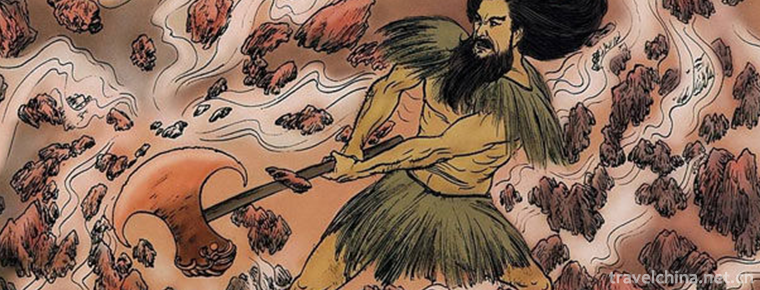
-
century eggspreserved egg100years egg
Preserved egg, also known as preserved egg, egg, egg, egg, etc.
Views: 212 Time 2018-10-12 -
Qiangcheng Tourist Area Beichuan
Mianyang Beichuan Qiang Town Tourist Area is located in Beichuan Qiang Autonomous County, northwest of Sichuan Basin. It consists of Beichuan Earthquake Relics Area, Beichuan New County Town.
Views: 164 Time 2018-12-12 -
Banyan Tree Shanghai On The Bund
Shanghai, one of the largest cities in the world, has a vibrant urban atmosphere, impressive urban skyline and rich and colorful culture. Located in the center of the city and resting on the Bank of H.
Views: 485 Time 2018-12-16 -
World Park
The World Park is located in Dabaotai, Huaxiang, Fengtai District, Beijing. It is 16 kilometers from the city center and 8 kilometers from Beijing West Railway Station. It is a national 4A-level sceni.
Views: 83 Time 2018-12-19 -
Yabuli Ski Resort
Yabuli Skiing Resort is a national AAAA-level scenic spot, located 20 kilometers southeast of Yabuli Town, Shangzhi City, Harbin City, Heilongjiang Province, 240 kilometers away from Harbin City.
Views: 183 Time 2018-12-22 -
Bigan Temple
Bigan Temple, located in Weihui, Henan Province, is one of the most important temple-tomb complex. It is the first temple in China with tomb-worshippers, known as "the first temple in the world&a.
Views: 152 Time 2019-01-02 -
Hongfeng Lake Scenic Area
Hongfeng Lake Scenic Spot is located in the western suburb of Guiyang City, Guizhou Province, China. It is 28 kilometers away from Guiyang, the capital of Guizhou Province..
Views: 157 Time 2019-01-16 -
March 3rd Festival of Li Nationality
The third day of March (the third day of the third month of the third lunar month) is the grandest traditional folk festival of the Li people in Hainan Province. It is also a beautiful day for the you.
Views: 198 Time 2019-05-12 -
Manas
Manas, the traditional folk literature of Kirgiz Autonomous Prefecture in Kizlesu, Xinjiang, is one of the national intangible cultural heritage..
Views: 225 Time 2019-05-16 -
Taoping Qiang Village
Taoping Qiang village is located in Taoping Township, beside Zagunao River in Lixian County. Qiang village is 40 km away from Lixian City, 16 km from Wenchuan city and 139 km from Chengdu. It is a national key cultural relics protection unit and an important scenic spot in Jiuhuang line tourism circle..
Views: 128 Time 2020-11-07 -
Ganzi Zanba
"Zanba" is the Tibetan transliteration of fried noodles. It is a staple food that Tibetan people must eat every day. If you are a guest of Tibetan compatriots' homes, the host will bring you fragrant milk tea and highland barley fried noodles, golden butter and milk yellow "Qula" (casein) and sugar stacked on the table..
Views: 83 Time 2020-12-06 -
History of Luzhou
Luzhou was named "Lushui theory" and was called Jiangyang in ancient times. During the reign of Liang Datong in the Southern Dynasty (535-546 A.D.), Luzhou was set up to lead the Yangjun county. Jiangyang County: Jiangyang county (governing today's Jiangyang District),.
Views: 356 Time 2020-12-14
